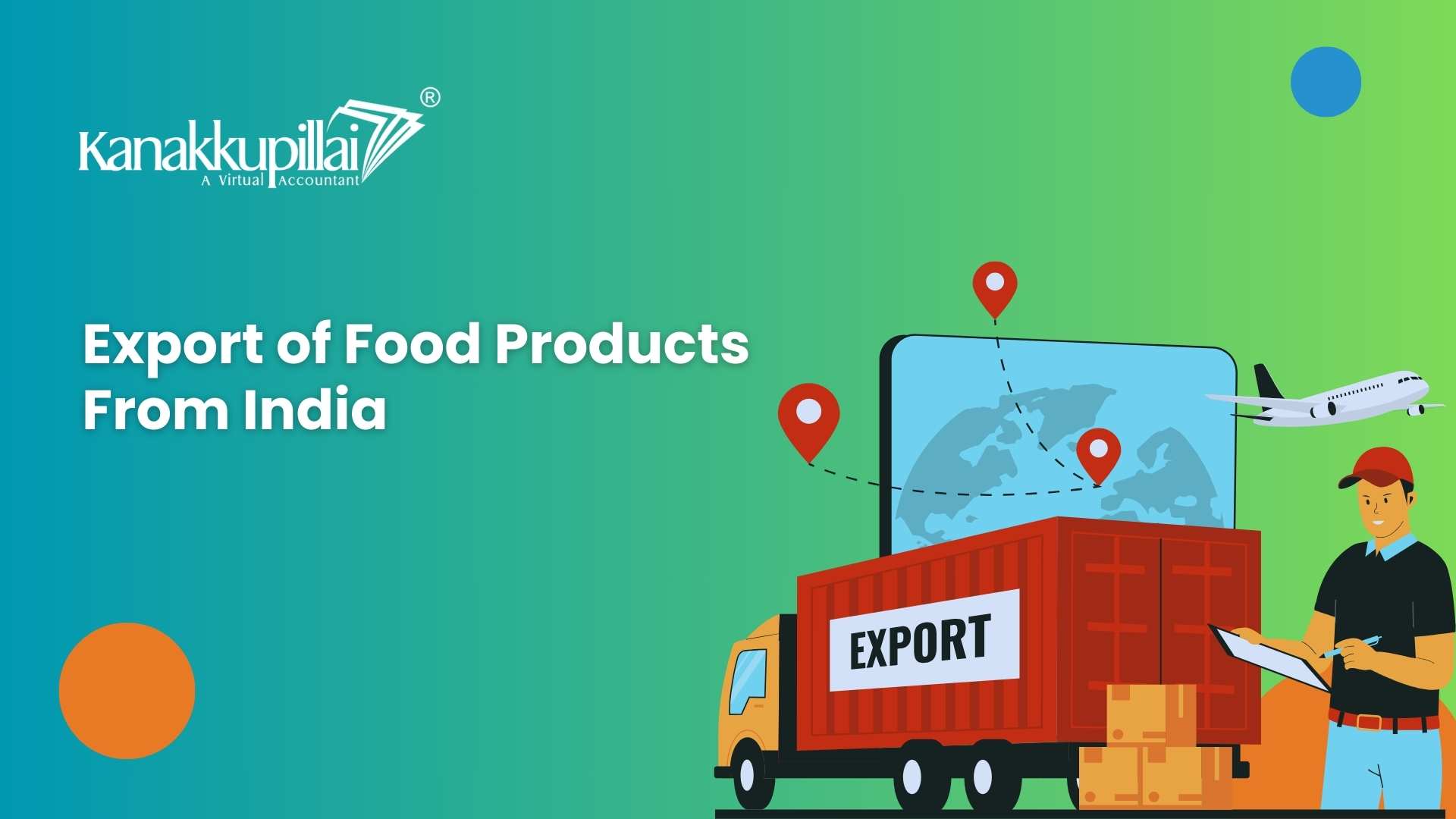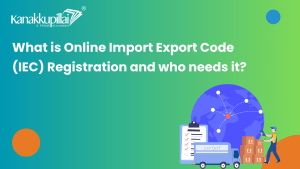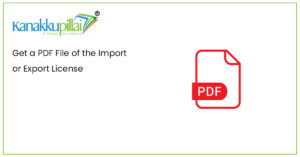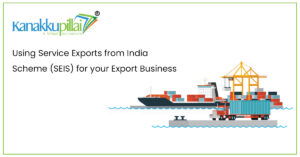![]()
Significance of FSSAI Licence For Exporters
Countries welcome those food products that meet the standards of FSSAI. Importers prefer those products that are safe and for human consumption; therefore, exporters are required to meet the guidelines and standards laid down by the food regulatory FSSAI.
The export of unsafe and substandard food products will impact not only the importing nation but also India as it can affect its relationship with other countries and cause it to lose future associations in the long term. Therefore, the FSSAI Licence has been made mandatory for those dealing in food products, as it gives the assurance that the quality and hygiene standards have been met for those food products that are exported from India.
Opportunities for Food Handling Ventures to Export their Food Items From India:
- Prepared-to-Eat Food Sources: Fast-food lifestyles and shifting food preferences drive the rapid expansion of the ready-to-eat food market worldwide. The Indian food handling industry can profit from this open door by creating different prepared-to-eat varieties, like frozen food sources and promoting accommodation meals. These items can be modified to suit the preferences and tastes of worldwide purchasers and sent out to different nations.
- Spices and Toppings: India is well-known for its abundant flavours and diverse spices and toppings, such as turmeric, cumin, coriander, cardamom, and black pepper. The demand for agricultural and processed foods from India is high globally, especially in Europe, the Middle East, and the United States. The Indian food processing industry can add value to its agricultural products by utilizing spice mixes, curry powders, and masalas.
- Dairy Products: India, the world’s greatest milk creator, has tremendous potential to expand its wares of dairy Products, for instance, milk powder, cheddar, and margarine. The business can benefit from the rising worldwide interest in top-notch dairy items, especially in Asia, Africa, and the Middle East.
- Fruits and vegetables: India is a leading producer of food sources developed from the beginning, an alternate extent of tropical natural items, for example, mangoes, bananas, and papayas. The Indian food taking care of industry can expand its regular and vegetable items by progressing frozen natural items, normal item squeezes, and canned vegetables. Compared to processed food sources, these products can be advertised as healthy and natural options.
- Ice cream parlour and bread shop items: The Indian food handling industry can also exploit the interest in ice cream and pastry items like chocolates, cookies, and cakes. These products can be delivered utilizing top-notch ingredients and altered to suit the preferences and tastes of worldwide buyers. The business can also investigate valuable opportunities in speciality sections, for example, natural and gluten-free products.
Here are the Procedures to Export Food Items From India
- Get the Export-Import Code: To begin exporting food items from India, the initial step is to get the Import Export Code (IEC) from the Directorate General of Foreign Trade (DGFT). The IEC code is a unique 10-digit number required for all organizations engaged with import or export exercises. To acquire an IEC code, the food handling industry should present an application structure and the necessary records (Documents) and pay the recommended expense.
- Register with FSSAI: The underlying step is to get the Import Export Code (IEC) from the Directorate General of Foreign Trade (DGFT) to start exporting food from India. The IEC code is a unique 10-digit number expected for all associations drawn in with import or product works out. The food processing industry can apply for an FSSAI permit online or offline, depending on their preference and accommodation.
- Recognizing the Export Item and Market: Before exporting food items from India, the food processing industry should recognize the items they need to export and the market objective. They should conduct market surveying to acknowledge the interest in the item in the aim of the market, the opposition, the estimating, and the lawful guidelines they need to follow. The food handling industry should also examine the creation cost and strategies cost to guarantee benefits in organic fruit products exports and vegetable exports.
- Figure Out the Import Guidelines of The Target Nation: Before starting to export food products from India, it is essential to comprehend the import regulations of the destination nation. Every nation has its arrangement of guidelines and norms regarding food imports, and it is fundamental to follow them to avoid legal issues. The exporter should conduct thorough research on the import guidelines of the target nation and guarantee that their food items fulfil the required guidelines.
- Acquire Important Certifications: The business should get certificates from different administrative bodies to export farming and processed food items from India. The product and target market may have different requirements for certifications. Phytosanitary, health, Halal, and Kosher certificates are some of the most frequently requested certifications.
- Packaging and Processing: The food processing industry should guarantee that the packaging and marking of the items conform to the lawful guidelines of the importing in the country. The checking should integrate the name and address of the manufacturer, the trimmings, the net weight, the manufacturing date, and the dietary information. The food item bundling should be solid and reasonable for transportation to ensure that the exported fruits and vegetables arrive in good condition.
- Logistics and Transportation: The food handling processing should design the logistics and transportation of the items carefully to guarantee timely delivery and limit costs. They should choose a dependable logistics partner with experience in agricultural exports and conforms to the legitimate guidelines of importing into the country. They should also guarantee that the items are moved in temperature-controlled holders, particularly for perishable items.
- Customs Clearance: After the items arrive at the destination, they should get the traditions free from importing into the country. The food handling industry should guarantee that all expected archives, certifications, and licenses are kept to avoid deferrals and penalties. Agricultural products should also consent to the legitimate guidelines of the importing nation, for example, naming and packaging prerequisites.
Licenses Required to Export Food Items From India
- Food Safety and Standards Authority of India (FSSAI) License: Suppose you’re running a food association in India or sending out food items from India. In that case, you want to get a permit from FSSAI. FSSAI is the authoritative body liable for sterilization and tidiness in India. The permit guarantees that your food items satisfy the well-being guidelines and are good for human utilization. To acquire the permit, you must present the essential records and pay the necessary expenses. The legitimacy of the permit goes from one to five years, contingent upon the kind of permit you acquire.
- Export-Import (EXIM) Registration: The Export-Import (EXIM) registration is compulsory for all organizations participating in import and export exercises. The Directorate General of Foreign Trade (DGFT) issues the registration, which must be renewed annually. The EXIM registration assists with following the export and import exercises of the business. It guarantees consistency with legal guidelines and regulations.
- Importer-Exporter Code (IEC) Registration: The Importer-Exporter Code (IEC) registration is compulsory for all organizations participating in agricultural and processed food item export exercises. The DGFT issues the IEC registration necessary for the goods’ customs clearance. The IEC registration is a ten-digit number that is substantial for the lifetime of the business.
- Certification of Halal: Products that are intended for consumption by Muslims must have halal certification. The Halal certificate guarantees that the food items are ready and bundled by Islamic dietary regulations (laws). A Halal confirmation organization gives the certificate, and the interaction includes carefully investigating the whole manufacturing process.
- Organic Certification: Food items produced using organic farming practices are required to obtain organic certification. This certification guarantees that the food items are free from harmful substances such as chemical fertilizers and pesticides. The National Program for Organic Production (NPOP), or a third-party certification organization authorized by the Agricultural and Processed Food Products Export Development Authority (APEDA), is responsible for issuing the organic certification.
- Certificate of Origin: The Certificate of Origin is a report confirming the origin of the exported items. The certificate, which is expected for the merchandise to be cleared through customs, is given by the Chamber of Commerce. To ensure special treatment under economic deals or to comply with the import regulations of the importing nation, the Certificate of Origin is necessary.
- Health Certificate: A document known as the Health Certificate is necessary to demonstrate that food products satisfy the health and hygiene standards of the importing nation. This certificate is issued either by the Export Inspection Council (EIC) or by a third-party inspection agency that holds accreditation from the EIC. Customs clearance for the products and adherence to the importing country’s guidelines and laws depend on the Health Certificate.
Advantages of Exporting Food Items From India:
- Food Exporting industries may gain several advantages from exporting food products. The most clearly apparent is the potential for expanded profits, as exporting grants associations to take advantage of new business areas and client bases, which eventually helps drive deals and income development. By growing their client base, organizations can diminish their dependence on homegrown business sectors and differentiate their kinds of revenue, consequently limiting the effect of monetary slumps or other market interruptions.
- Aside from boosting profits, exporting can make advancement and item improvement opportunities. Trade organizations are often expected to adjust to unfamiliar business sectors’ remarkable prerequisites and inclinations, which can prompt growing new items or refining existing ones. This can assist organizations in remaining competitive and meeting developing consumer inclinations and trends.
- Processed organic foods also offer opportunities for cost reserve funds and effectiveness. Organizations can accomplish economies of scale and diminish their expenses per unit of creation by extending their creation ability to satisfy the needs of worldwide business sectors. Furthermore, trading can alleviate the impacts of occasional vacillations sought after, as organizations can sell their items in business sectors with changing interest cycles.
- A company’s reputation and brand recognition can benefit from exporting. Exporting can demonstrate that an organization can contend worldwide and indicate to clients and investors that the organization is focused on development and advancement. A solid export strategy can also help build associations with key clients, suppliers, and partners in foreign business sectors, opening up new opportunities for collaboration and development.
We hope that our article has been productive and helpful to you. If you need any further guidance, you can contact www.kanakkupillai.com





